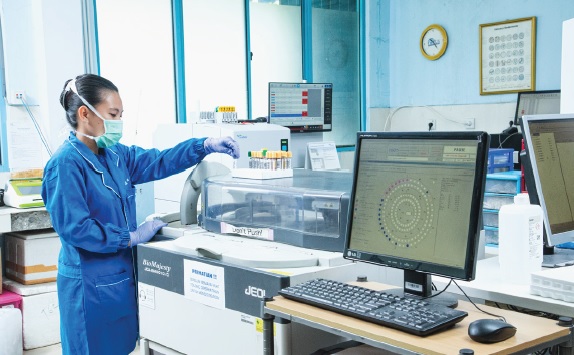In science education, laboratory activities are an integral part of teaching and learning activities, especially chemistry. This shows how important the role of laboratory activities is to achieve educational goals. Activities in the laboratory make it easy for participants to understand what they are learning about through a scientific work approach.
Chemistry is one of the fields of scientific study developed based on experiments that seek answers to the questions of what, why and how natural phenomena, especially those related to the composition, structure, transformation, dynamics and energetics of substances that involve reasoning and skills. For further information you can check in this link lab fume hoods supplier Malaysia.
Laboratory is a place where experiments, measurements, research or scientific research activities are carried out related to science (chemistry, physics, biology) and other sciences. The laboratory can be a closed room such as a room or an open room such as a garden and others. The laboratory is a place to apply scientific theory, theoretical testing, experimental evidence, research and so on by using tools that are complete with facilities with adequate quantity and quality.
A laboratory is a place where a group of people do various things
research activities (research), observation, training and scientific testing as an approach between theory and practice from various disciplines. Physically the laboratory can also refer to a closed room, room or open space. The laboratory must be equipped with various infrastructure facilities for experimental needs.
The laboratory as a place for research activities, research, experiments, observations, and scientific testing has many functions, namely:
- Balancing between theory and practice of science and unifying theory and practice
- Provide scientific work skills for researchers, both from among students, students, lecturers, or other researchers. This is because the laboratory does not only require an understanding of the object being studied, but also requires someone to conduct experiments.
- Provide and foster the courage of researchers (consisting of students, students, lecturers and all other scientific practitioners) to seek the nature of scientific truth from a scientific object in the natural and social environment.
- Increase the skills and expertise of researchers in using the media tools available in the laboratory to find and determine scientific truth in accordance with various kinds of research or experimentation to be carried out.
- Cultivate curiosity in researchers about various kinds of science so that it will encourage them to always study and seek scientific truth by means of research, trials, and experimentation.
- Laboratories can foster and foster the confidence of researchers in the skills acquired or in the discoveries made in the process of working in the laboratory.
- Laboratories can be a source of learning to solve various problems through practical activities, be it problems in learning, academic problems, or problems that occur in the community that require handling with laboratory tests.
- The laboratory can be a learning tool for students, students, lecturers, activists, researchers and others to understand all knowledge that is still abstract so that it becomes something concrete and real.




